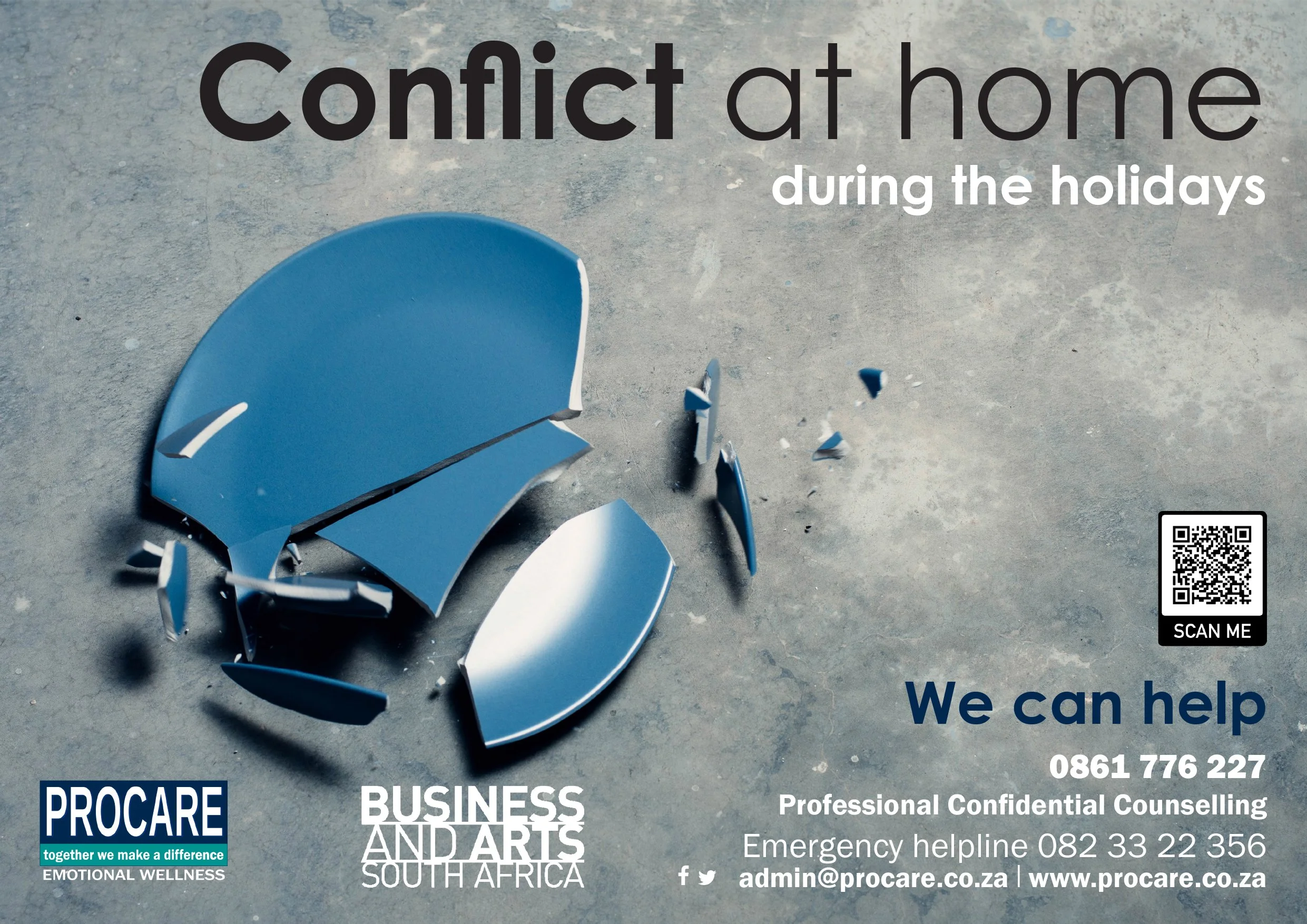Conflict at home 2021
Conflict at home during the holidays
Common causes of family conflict
It is well recognised that some of the stages a family goes through can cause conflict. These may include:
Learning to live as a new couple
Birth of a baby
Birth of other children
A child going to school
A child becoming a young person
A young person becoming an adult
Each of these stages can create new and different stresses and potential conflict
Changes in the family situation can also take a toll on the family and contribute to conflict. This may include events such as:
Separation or divorce
Moving to a new house or country
Travelling long distances to work
Change in financial circumstances
The opinions, values and needs of each parent can also change and they may find they are no longer compatible.
Agreeing to negotiate
When we experience family conflict during the holidays, when we are supposed to relax, our first angry impulse might be to push the point that we are right and win the argument at any cost. Finding a peaceful resolution can be difficult, if not impossible, when both parties stubbornly stick to their guns. It helps if everyone decides as a family to try listening to each other and negotiating instead.
Suggestions include:
Work out if the issue is worth fighting over
Try to separate the problem from the person
Try to cool off first if you feel too angry to talk calmly
Keep in mind that the idea is to resolve the conflict, not win the argument
Remember that the other party isn’t obliged to always agree with you on everything
Define the problem and stick to the topic
Respect the other person’s point of view by paying attention and listening
Talk clearly and reasonably
Try to find points of common ground
Agree to disagree
Work as a team
Once both parties understand the views and feelings of the other, you can work out a solution together.
Suggestions include:
Come up with as many possible solutions as you can
Be willing to compromise
Make sure everyone clearly understands the chosen solution
Once the solution is decided on, stick to it
Write it down as a ‘contract’, if necessary
Tips for handling family conflict and stress during the holidays
Here are some ways to manage conflicts and holiday stress that may arise:
Take turns with relatives
If you and your spouse both want to celebrate with your families of origin, if you're dealing with a divorce situation where not everybody wants to celebrate together or if you just have a lot of family, it can be stressful deciding who to see, and when. Taking turns is an easy solution. If you see one group in November, see the other in December, or alternate years. Then you can eventually see everybody.
Host celebrations at your house
If the stress of traveling each year is more than you'd like to handle, you may want to have family over to your home for the holidays. This is also a good solution when you have too many groups or relatives to take turns seeing: invite everyone to celebrate together, and you will get to see everyone more often.
Be prepared for some conflict
If you usually have conflict when you get together with your family, it's a good idea to be prepared for it.
Just say no to it all
If seeing family causes you great amounts of stress, it's okay to say no sometimes. Celebrating with just your partner or kids can be a wonderful alternative to seeing people who make you feel consistently stressed.
Things to remember
Conflict can happen when family members have different views or beliefs that clash
Peaceful resolution depends on negotiation and respect for the other person’s point of view
Seek professional advice if you think you need help
Professional counselling
There are services available to help family members work through difficult issues of conflict. Seek professional counselling if you think you need some assistance.


